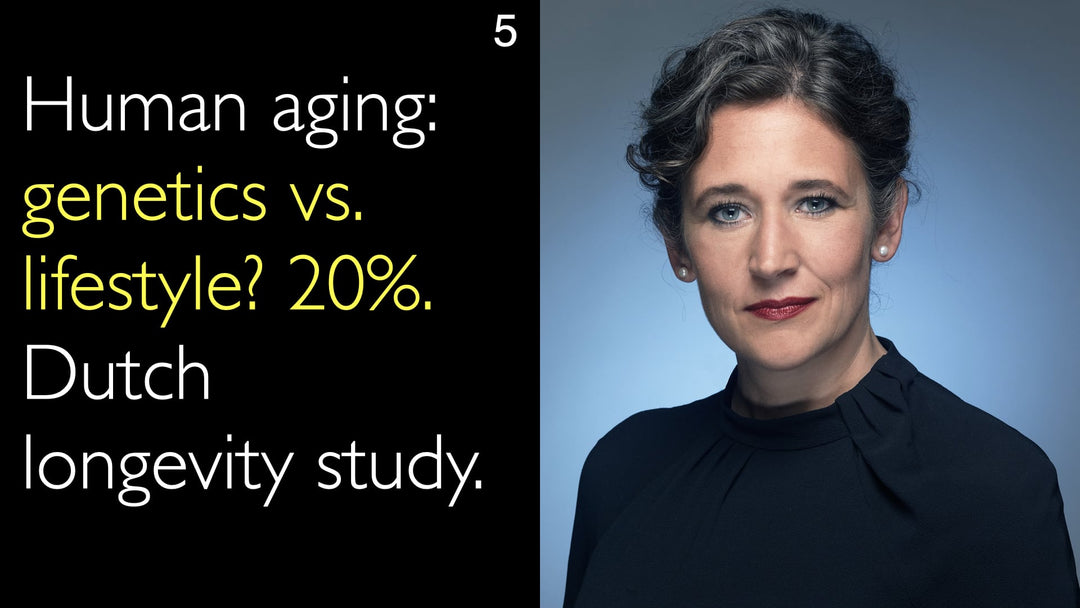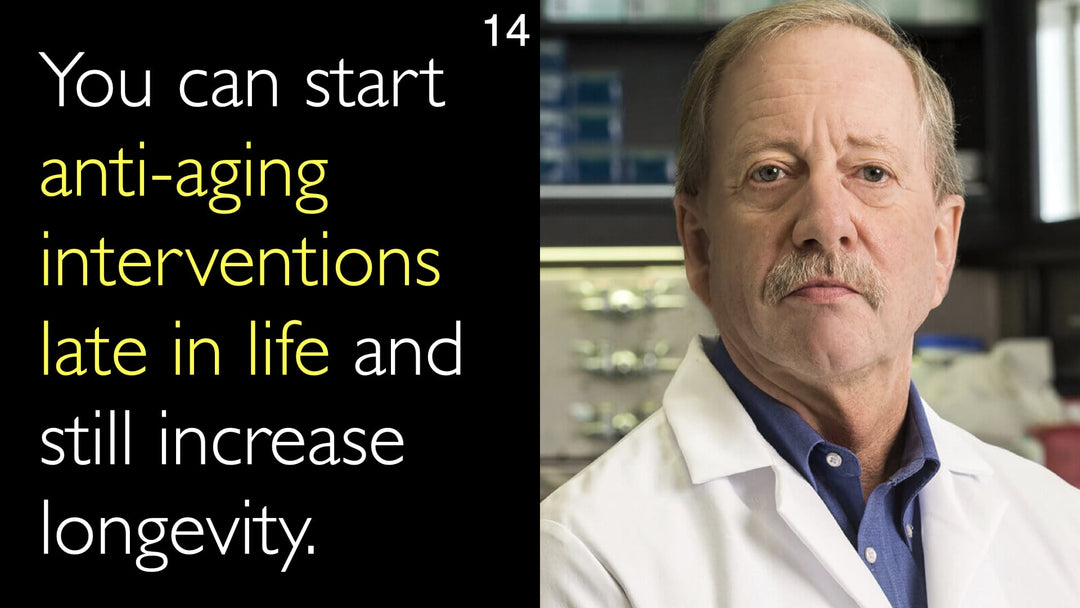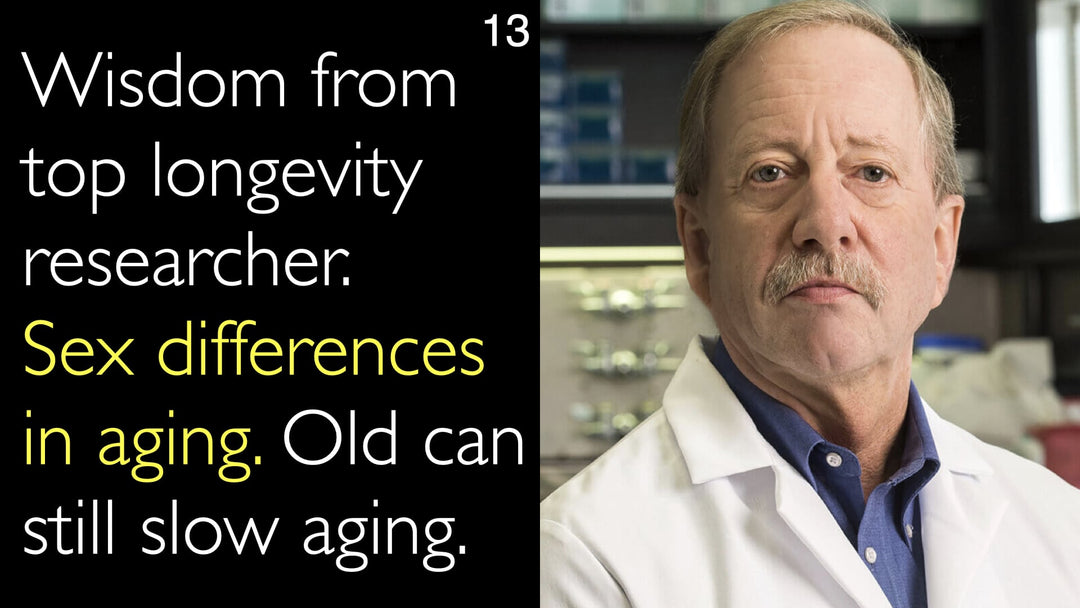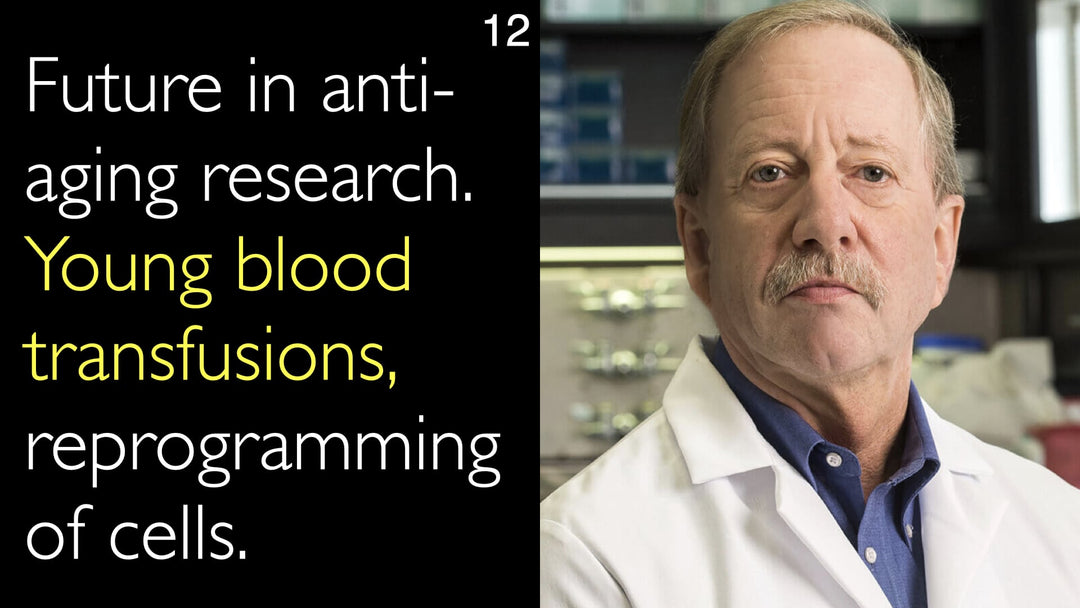Dr. Andrea Maier, MD, eine führende Expertin für Altern und Langlebigkeit, erklärt, wie Genetik und Lebensstil die menschliche Lebenserwartung prägen. Sie stellt detailliert die Ergebnisse einer wegweisenden niederländischen Studie zur Langlebigkeit vor, die Familien mit außergewöhnlich langlebigen Mitgliedern über Generationen hinweg analysierte. Genetische Faktoren tragen etwa 20 Prozent zur Langlebigkeit bei. Zu den bedeutenden Erkenntnissen zählen eine verbesserte Glukoseregulation und unterschiedliche Genexpression in diesen Familien. Das ApoE-Gen und der mTOR-Signalweg spielen eine wichtige Rolle im Alterungsprozess. Dr. Maier betont, dass genetische Tests zur Vorhersage von Langlebigkeit derzeit noch nicht für den klinischen Einsatz geeignet sind.
Genetische und Lebensstilfaktoren der menschlichen Langlebigkeit: Erkenntnisse aus einer wegweisenden Studie
Direkt zum Abschnitt
- Design der niederländischen Langlebigkeitsstudie
- Wichtige Erkenntnisse zu Gesundheitsmarkern
- Genetische Analyse und Langlebigkeit
- mTOR-Signalweg und Alterung
- Klinische Implikationen der genetischen Forschung
- Vollständiges Transkript
Design der niederländischen Langlebigkeitsstudie
Dr. Andrea Maier, MD, beschreibt den einzigartigen Aufbau der Leiden Langlebigkeitsstudie. Die Forschenden rekrutierten Nonagenarier – Personen in ihren neunziger Jahren –, die jeweils ein Geschwisterkind im gleichen Alter hatten. Dieses Geschwisterpaar-Design deutete auf eine starke familiäre Veranlagung für ein langes Leben hin. Die Studie bezog auch die Nachkommen dieser hochbetagten Geschwister ein, die 50 % ihres genetischen Materials teilen. Als entscheidende Kontrollgruppe wurden die Partner (Ehegatten) der Geschwister einbezogen. Dr. Andrea Maier, MD, erläutert, dass dies den Wissenschaftlern ermöglichte, den Einfluss von Genetik im Vergleich zu gemeinsamer Umwelt und Lebensstil zu vergleichen.
Wichtige Erkenntnisse zu Gesundheitsmarkern
Die Forschung zeigte signifikante physiologische Unterschiede bei den Nachkommen langlebiger Personen. Im Vergleich zu ihren Partnern wiesen diese Nachkommen deutlich niedrigere Glukosespiegel und ein überlegenes Glukoseregulationssystem auf. Dr. Andrea Maier, MD, merkt an, dass niedrigere Glukosewerte mit einem reduzierten Diabetesrisiko verbunden sind. Auch andere Hormone, wie Schilddrüsenhormone, waren in den langlebigen Familien anders reguliert. Bemerkenswert ist, dass die Nachkommen bereits im Alter von 60 Jahren eine geringere Prävalenz altersbedingter Erkrankungen als ihre Partner zeigten. Diese Befunde lieferten konkrete Hinweise darauf, dass Langlebigkeits- und Gesundheitsmerkmale familiär gehäuft auftreten.
Genetische Analyse und Langlebigkeit
Dr. Anton Titov, MD, und Dr. Andrea Maier, MD, diskutieren die genetische Komponente des Alterns. Der wissenschaftliche Konsens geht davon aus, dass die Genetik etwa 20 % zur Langlebigkeit einer Person beiträgt. Die Studie unter der Leitung von Dr. Eline Slagboom zielte darauf ab, spezifische Gene zu identifizieren, die mit langem Leben assoziiert sind. Zwar wurde kein einzelnes "Langlebigkeitsgen" entdeckt, doch die Analyse zeigte, dass krankheitsassoziierte Gene in langlebigen Familien seltener vorkamen. Das ApoE-Gen, bekannt für seinen Zusammenhang mit Demenzrisiko, war eines der Gene, die mit Langlebigkeit in Verbindung standen. Dr. Andrea Maier, MD, betont, dass Langlebigkeit von einem komplexen Netzwerk von Genen beeinflusst wird und nicht von einem einzelnen Gen abhängt.
mTOR-Signalweg und Alterung
Eine entscheidende Entdeckung betraf den mTOR-Signalweg (mechanistic Target of Rapamycin). Gene innerhalb dieses Signalwegs waren in den langlebigen Familien unterschiedlich exprimiert. Dr. Andrea Maier, MD, erklärt, dass der mTOR-Signalweg grundlegend für die Zellfunktion ist. Er spielt eine zentrale Rolle bei der Proteinsynthese und verschiedenen zellulären Signalwegen. Eine Dysregulation von mTOR ist eng mit der Entstehung von Krankheiten und dem Alterungsprozess selbst verbunden. Dieser Befund weist auf einen Schlüsselmechanismus hin, der bei Personen, die zu einem längeren und gesünderen Leben neigen, optimiert sein könnte.
Klinische Implikationen der genetischen Forschung
Dr. Anton Titov, MD, untersucht das Potenzial für die klinische Anwendung dieser Forschung. Dr. Maier stellt klar, dass die genetische Analyse zur Vorhersage der Langlebigkeit noch nicht für den Einsatz in der Patientenversorgung bereit ist. Zwar sind bestimmte Gene bekannt, die das Risiko für Erkrankungen wie Krebs oder Herz-Kreislauf-Erkrankungen erhöhen, doch das Netzwerk für Langlebigkeit ist komplexer. Das Ziel dieser Forschung ist es, die Biologie des Alterns selbst besser zu verstehen. Ähnliche Studiendesigns in Italien mit Hundertjährigen haben diese Befunde bestätigt. Dr. Andrea Maier, MD, schlussfolgert, dass diese Arbeit eine Grundlage für zukünftige Interventionen schafft, um gesundes Altern in der breiten Bevölkerung zu fördern.
Vollständiges Transkript
Dr. Anton Titov, MD: Die menschliche Langlebigkeit wird sowohl von Genetik als auch Lebensstil beeinflusst. Sie haben Blutproben einer Kohorte niederländischer Familien untersucht, die über mehrere Generationen hinweg eine erhöhte Langlebigkeit zeigten, also sehr lange lebten. Was haben Sie aus Ihrer genetischen Analyse des Alterns in dieser niederländischen Langlebigkeitsstudie gelernt?
Dr. Andrea Maier, MD: Ich hatte das Glück, während meines Studiums der Inneren Medizin in Leiden mit der Leiden Langlebigkeitsstudie und der Leiden 85-plus-Studie zu arbeiten. Die Leiden Langlebigkeitsstudie hat einen sehr eleganten Aufbau. Wir rekrutierten Nonagenarier und ihre ebenfalls nonagenären Geschwister.
Das bedeutet, dass jemand im Alter von 90 Jahren einen Bruder oder eine Schwester hat, der oder die ebenfalls 90 ist. Das deutet darauf hin, dass in diesen Familien etwas Besonderes vorliegt, weil es zwei Geschwister mit langem Leben gibt. Wir bezogen auch die Nachkommen ein, weil 90-Jährige oft gebrechlich sind – ich würde nicht sagen, dass sie alle gebrechlich sind, aber für uns war es wichtig zu sehen, wie es ihren Nachkommen geht.
Die Nachkommen teilen natürlich 50 % des genetischen Materials dieser nonagenären Geschwister. Die Hauptuntersuchungsleiterin der Studie ist Dr. Eline Slagboom aus Leiden. Wir bezogen auch die Partner der Geschwister als Kontrollgruppe für die Nachkommen der nonagenären Geschwister ein.
Wir wollten sehen, welchen Einfluss ein langes Leben in der Familie hat, und verglichen sie mit den Kontrollen. Die Kontrollen sind also die Ehemänner und Ehefrauen dieser nonagenären Geschwister.
Was wir feststellen konnten, ist, dass Langlebigkeit tatsächlich in Familien vorkommt. Die Nachkommen der nonagenären Geschwister wurden beispielsweise mit ihren Ehepartnern verglichen, die mit ihnen zusammenleben. Sie hatten einen viel niedrigeren Glukosespiegel und ein besseres Glukoseregulationssystem.
Wir wissen, dass ein niedrigerer Glukosespiegel das Diabetesrisiko verringert. Aber auch andere Hormone wie Schilddrüsenhormone waren anders reguliert. Bereits im Alter von etwa 60 Jahren – dem Alter der Nachkommen von Nonagenariern –
konnten wir sehen, dass sie weniger altersbedingte Erkrankungen im Vergleich zu ihren Partnern hatten. Das beweist, dass in diesen Familien etwas Besonderes vorliegt. Diese Personen wurden in die genetische Analyse einbezogen, weil Gene für Langlebigkeit sehr wichtig sein könnten.
Langlebigkeitsforscher gehen davon aus, dass etwa 20 % der Langlebigkeit auf der genetischen Ausstattung basieren. Wir konnten einige Gene finden, wie das ApoE-Gen, das mit Langlebigkeit assoziiert war. Aber wir konnten kein einzelnes Langlebigkeitsgen identifizieren. Stattdessen fanden wir krankheitsassoziierte Gene, die bei den Personen aus den langlebigen Familien fehlten.
Sehr interessant! Wir konnten auch zeigen, dass einige Gene stärker exprimiert waren als andere. Eine der betroffenen Genfamilien liegt beispielsweise im mTOR-Signalweg. Wir sahen, dass in den langlebigen Familien diese Gene unterschiedlich reguliert waren.
Und mTOR ist sehr wichtig für die Proteinsynthese und viele zelluläre Signalwege. Der mTOR-Signalweg ist mit dem Auftreten von Krankheiten und Alterung verbunden. Mit diesem eleganten Studiendesign konnten wir also etwas tiefer in die Biologie eintauchen und zeigen, dass Nachkommen nonagenärer Geschwister sich deutlich von ihren Partnern unterscheiden.
Glücklicherweise gab es auch andere Studiendesigns, die Ähnliches untersuchten, beispielsweise in Italien mit Hundertjährigen und ihren Nachkommen. Mittlerweile gibt es viele weitere Kohortenstudien, die dieselben Ergebnisse liefern, um ein besseres Verständnis des Alterungsprozesses selbst zu gewinnen.
Beispielsweise ist das ApoE-Gen mit bestimmten Allelen assoziiert, die den Beginn von Demenz beeinflussen. Es handelt sich also um ein riesiges Netzwerk von Genen. Nicht ein einziges Gen, sondern ein ganzes Gennetzwerk ist mit Langlebigkeit verbunden.
Wenn Sie mich also fragen: Ist die genetische Analyse bereit für den Einsatz in der klinischen Versorgung? Können wir sagen: "Sie haben eine gute genetische Ausstattung" oder nicht? Wie ich bereits für andere Biomarker des biologischen Alters sagte, ist dies noch nicht bereit für die klinische Anwendung.
Was wir jedoch wissen, ist, dass es bestimmte Gene gibt, die stärker mit der Entwicklung von Krebs oder Herz-Kreislauf-Erkrankungen assoziiert sind. Das sind aber Gene, die mit Krankheiten in Verbindung stehen. Wir suchten hingegen nach Genen, die mit Langlebigkeit assoziiert sind.







